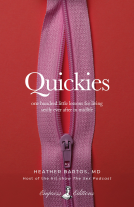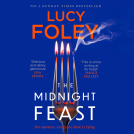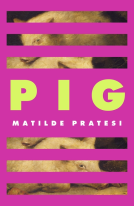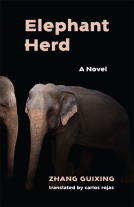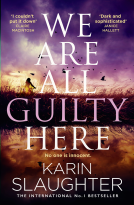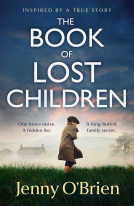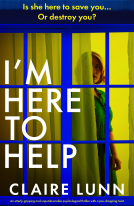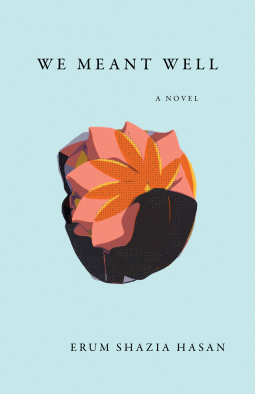
We Meant Well
A Novel
by Erum Shazia Hasan
This title was previously available on NetGalley and is now archived.
Send NetGalley books directly to your Kindle or Kindle app
1
To read on a Kindle or Kindle app, please add kindle@netgalley.com as an approved email address to receive files in your Amazon account. Click here for step-by-step instructions.
2
Also find your Kindle email address within your Amazon account, and enter it here.
Pub Date 11 Apr 2023 | Archive Date 9 Jan 2023
Talking about this book? Use #WeMeantWell #NetGalley. More hashtag tips!
Description
A propulsive debut that grapples with timely questions about what it means to be charitable, who deserves what, and who gets the power to decide
It’s the middle of the night in Los Angeles when Maya, a married mother of one, receives the phone call. Her colleague Marc has been accused of assaulting a local girl in Likanni, where they operate a charitable orphanage. Can she get on the next flight?
When Maya arrives, protesters surround the compound. The accuser is Lele, her former protégé and the chief’s daughter. There are no witnesses, no proof of any crime.
What happened that night? And what will happen to the orphanage if this becomes a scandal? Caught between Marc and Lele, the charity and the villagers, her marriage and new temptations, Maya lives the secret contradictions of the aid worker: there to serve the most deprived, but ultimately there to govern.
As Maya feels the pleasures, freedoms, and humanity of life in Likanni, she recognizes that her American life is inextricably woven into this violent reality — and that dishonesty in one place affects the realities in another.
Available Editions
| EDITION | Other Format |
| ISBN | 9781770416659 |
| PRICE | US$19.95 (USD) |
Featured Reviews
 Kelsey G, Reviewer
Kelsey G, Reviewer
I absolutely devoured this book, like a car crash of cringe that I simply couldn't stop looking at. Hasan has managed to capture the tension between being a foreigner in a developing country, ostensibly to "help," but quickly realizing that the systems in place mean you will never be able to make any sort of actual change.
I was overwhelmed with the different perspectives Hasan was able to incorporate, probably because she has done this work for years and has seen these people in real life. The man on a mission who becomes embittered towards locals, the French woman who hugs children but never goes to visit her colleague in the village after she was raped, the American aid worker who is Brown and therefore enjoys the privilege she finds in a Black culture as an American aid worker, the couple who become citizens of the developing country and truly try to make small changes that minimize harm and encourage others to do the same.
The thing that struck me the most is how the protagonist, Maya, walks the line between reliable and unreliable. I believed her, I trusted her perspective, and felt she was usually trying to do the right thing, but never once did Maya consider helping people in her own community in the U.S., never once had Maya considered that local doctors might be just as capable, if not more, than "the [foreign] good ones" never once had Maya considered minimizing harm at home, feeling she would be called a "social justice warrior."
I have never been an aid worker but I am an avid traveler, and I really felt the tensions at play in this book as realistic depictions. The world is broken, colonialism remains but in different packages and with more friendly advertising, and none of us know how to fix it. All we can do is try to see each other as fellow humans, work with those in our community and not just those worlds away, and try our very best to make daily choices that don't contribute to suffering or exploitation. Easy, right? Maybe not, but Hasan made all of this tension feel natural, and I'll be thinking about this one for a very long time.
"We Meant Well" by Erum Shazia Hasan was such an engaging read! Following Maya's journey, as readers we get to explore the underbelly of the international charity that's set out to help developing countries during the time of major crisis; one of the deployed managers is accused of raping a local staffer.
There is do doubt that Maya was sent to Likanni to save the image of the organisation, not to help the survivor. Battling her own mental health and marital issues, she's thrown in the middle of the crisis, in which she needs to make important decisions: whom to believe? How to provide safety for her team? How her decision will affect future funding?
The protagonist is a very complex character, and so is the landscape of the imaginary location. Erum Shazia Hasan paints a very believable picture of the dynamics between the local communities and the helpers, as well as the cast of characters and their motivations - from the beginning until the very powerful ending.
We Meant Well is an important book, not only because it is beautifully written and structured but because it raises ethical questions for the reader about providing aid and about what to do when things go dreadfully wrong. These are uncomfortable and that do not have easy answers. but they do need to be asked. It could be set in the life and times of NGOs anywhere where there is war, poverty and western companies after valuable resources, where children are conscripted into armies and where orphanages are part of life for children who can't be cared for in their communities. What Erum Shazia Hasan does, with the clear benefit of her lived experience, is to create a context where we are faced with the same issues that every NGO worker is likely to face at some time. How can I show appropriate respect, our lives and experiences are so different , what is the best way to do more than mean well ? The content is contemporary and I can imagine that international aid students may be asked to read We Meant Well as a case study in the future.
Maya is perfect as our leader in the imaginary Likanni where she has been the 'bigabosse' of a charitable orphanage. Naturally the charity has their head office in Geneva and Maya herself is managing a number of orphanages from her base in LA. Welcome to reality. Those on the ground have been 'left' to manage as best they can. The book starts with a call to Maya in LA advising that one of her colleagues has been accused of the assault of a young girl. her endeavours to resolve this situation means she returns and gives us an insider's view of the reality of life in such an environment. It isn't only the beautiful and accurate descriptions of the people and their land it is also the compromises the locals make and those the the aid workers make on a daily basis. The transitory nature of staff who fly in for a year or two and the challenge of a potentially violent day to day life. The story unfolds beautifully with increasing complexity but Maya's own life is also imploding and the required decision making will be at risk. I loved this book and will be recommending it strongly as a must read. Thanks to @netgalley and @ecwpress.com for the copy to review. The opinions are my own.
 Stephanie S, Reviewer
Stephanie S, Reviewer
I’m thrilled to be one of the first to review We Meant Well. It’s a terrific book…easily one of my top 5 favorites for the year. It’s beautifully written, with well-drawn characters, and I raced through it to discover its conclusion. What a conclusion it was, too. I was left stunned and delighted.
Maya is a dedicated humanitarian who has overseen an orphanage for years in a very small village in Africa called Likanni. She has retired to her home in California when she gets a call in the middle of the night that a colleague of hers back in Likanni has been accused of rape by a young Likanni girl, Lele, who has worked with the orphanage for years as a protégé of Maya’s. When Maya returns to the village, she finds the locals protesting at the orphanage. Lele accuses Marc of rape, but Marc maintains his innocence. Maya faces the difficult task of sorting out what happened, all while dealing with problems within her own family and a forbidden attraction.
This book worked for me on many levels – the location, the people (both humanitarian and local) and the fallout from the rape accusation. All added to create a suspenseful, wonderfully told story. Highly recommended.
Thanks to NetGalley and ECW Press for providing an e-ARC in exchange for my honest opinion

